Heath Harmon’s second Kickoff Luncheon as the Alabama High School Athletic Association executive director was dominated by the same two topics as his first last summer.
Non-compliant transfers and NIL.
For years, college sports has been the headliner of the fall season. The loud crowds chant for their team while the school band blasts the school anthem during crucial moments in the game. Institutions are given tons of money to fund various sports programs and give their teams the best facilities possible to maximize their […]
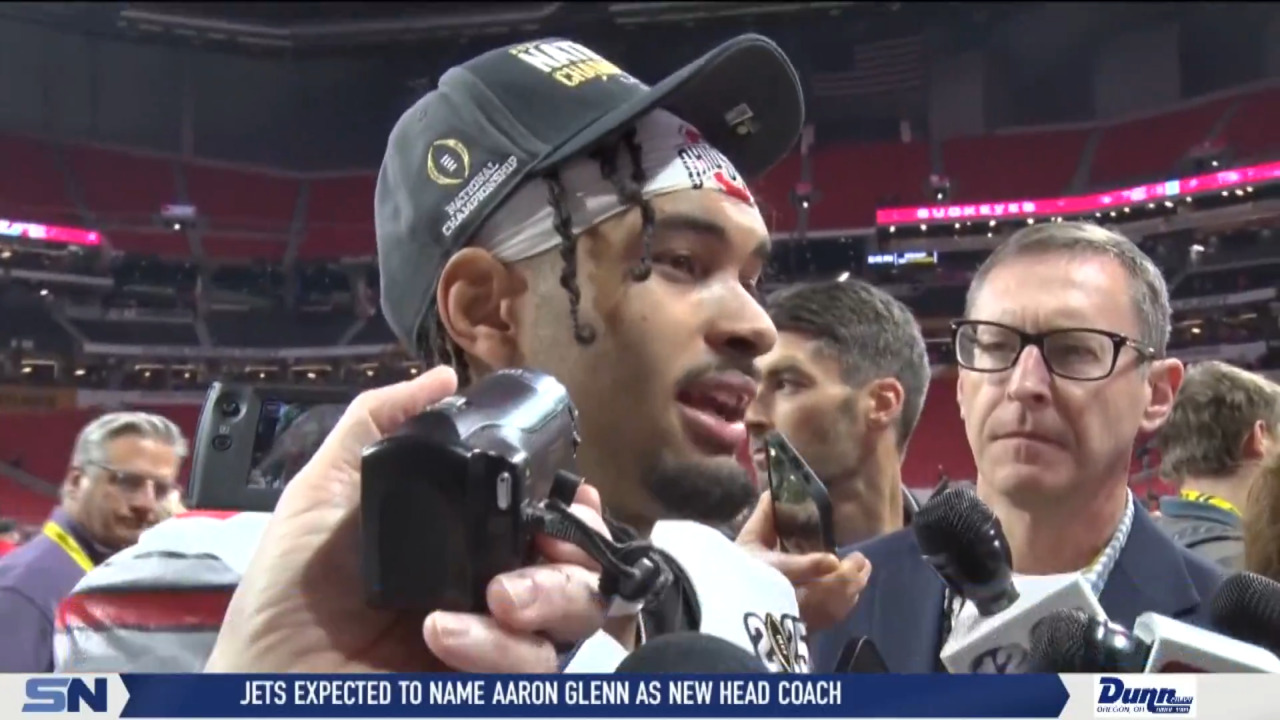


For years, college sports has been the headliner of the fall season. The loud crowds chant for their team while the school band blasts the school anthem during crucial moments in the game. Institutions are given tons of money to fund various sports programs and give their teams the best facilities possible to maximize their potential. At the same time, EA Sports’ College Football 25 shared the likeness of the schools top players.
With all this going on and the players not seeing a dime of the profits, something had to change and it did. There has been no secret about players wanting to be compensated for all the work they’ve done to make their respective school profitable. The NCAA made it illegal to accept any benefit as a student-athlete until 2021 when NIL deals became legal to obtain. The Name, Image, and Likeness payout have given players a clear avenue to make money. They can promote products for various companies.
Advertisement
The issue with all this now is that players are entering the transfer portal for a chance to earn a bigger paycheck. This has become a growing problem since the idea was passed. Some players have become check collectors by staying at a school for a short period before heading to a new stop. There are very little regulations behind any of the movements.
Back in 2021-22 the number of transfer players reached 1,907 and grew to over 2,500 this year. This has become an issue for college coaches. There are certain schools who can’t keep up with payment demands. Ten college basketball schools are preparing to spend a reported $10 million to keep a top roster in 2025.
Related: BYU Basketball on NIL elites list going into next season
Former Alabama coach Nick Saban has an immense disdain for NIL deals.
Advertisement
“”I think all the things that I believed in for all these years no longer exist in college athletics. It’s always been about developing players, it was always about helping people be successful in life.” Saban said. He met with President Trump this week to talk about federal regulations with NIL.
Related: Livvy Dunne turns heads by crushing retirement life
While there are other coaches who share the same sentiment, there are a few who believe this is a great opportunity for young kids to learn about finances and how to protect your money. Arkansas basketball coach John Calapari believes this is the kind of responsibility they need for the real world. “I think it’s really good for our student-athletes. I mean, it’s finally allowing them to earn what they are worth,” said Calapari.
Related: South Carolina QB turns heads with latest NIL deal
Calapari has a valid point to say the least. These young men go through life with very little understanding of how the world works with money and how easily it can be manipulated, especially in the NFL. Those contracts have loopholes that many don’t understand until something occurs. You go from having nothing to having the world in a few short years.
Advertisement
However, that’s often the argument people try to make. Players can’t handle such a large amount of money at a young age. Isn’t part of growing up allowing yourself to make mistakes so you can learn how to be smarter for the future? Now that’s not saying go blow through your money, but learn how to navigate through the world of finance. That’s what makes these NIL deals intriguing.
Still, the dialogue surrounding NIL deals has had its impact in the collegiate world. No matter how you look at this mixed noise, we’ll see players move about at their own leisure. Let’s just hope we grow, not regress to where future generations can profit too.
A federal investigation into alleged point shaving and game fixing in college basketball is nearing its end, Sports Illustrated’s Pat Forde and Michael Rosenberg reported. The inquiry is focused on “Southern Schools,” according to SI. Investigators from the U.S. Attorney’s Office in the Eastern District of Pennsylvania conducted interviews with players suspected of influencing their […]

A federal investigation into alleged point shaving and game fixing in college basketball is nearing its end, Sports Illustrated’s Pat Forde and Michael Rosenberg reported. The inquiry is focused on “Southern Schools,” according to SI.
Investigators from the U.S. Attorney’s Office in the Eastern District of Pennsylvania conducted interviews with players suspected of influencing their performances as gamblers wagered on games. SI cited a source who said, “There are going to be charges.” The same source said multiple players and programs will be involved as part of a “national scope.”
The investigation centered on a ring that was involved with Jontay Porter, the former NBA player who was banned for life for gambling in 2024, according to SI. Additionally, the office is looking into unusual wagering activity on Malik Beasley’s games during the 2023-24 season. Beasley has not been charged with any crime.
SI reported the ring charged in Porter’s case was connected to at least college basketball games over the last two seasons. Five teams had wagers flagged on their games, and the NCAA is investigating programs such as New Orleans, Eastern Michigan, Mississippi Valley State and Temple.
ESPN’s David Purdum previously reported Eastern Michigan, Mississippi Valley State and North Carolina A&T were all part of the reported betting ring. Purdum reported in the case of Eastern Michigan and North Carolina A&T, both were flagged for suspicious activity by “betting integrity monitors” for wagers regarding first-half spreads.
Eastern Michigan’s games against Wright State and Central Michigan last season came into question. In both cases, the Eagles went into the locker room behind. They came back to beat Wright State, but came up short against CMU.
Just one game was mentioned by Purdum for North Carolina A&T – Jan. 9 against Delaware. In the first-half, the line moved up to Delaware -3.5 from -2 ahead of tip while the full-game line remained at -4. The Blue Hens would go on to cover that spread, leading by six at the half.
Additionally, in 2023-24, Temple and Loyola Maryland came under review for suspicious wagering activity. Loyola Maryland played its final game of the season against Navy – a 64-48 loss in the Patriot League Tournament.
That meant the Greyhounds’ season ended with a 7-26 overall record and a 5-13 mark in conference play. One day later, head coach Tavaras Hardy announced he was stepping down, although that decision was not related to the gambling situation.
News of the Loyola Maryland situation came less than 24 hours after another emerged involving Temple. The Owls took on UAB in their penultimate regular season game. After the Blazers opened as 1.5-point favorites, though, the spread ballooned to eight or 8.5, depending on the book.
UAB went on to win the game 100-72 at Temple, and watchdog U.S. Integrity sent an alert to casinos about suspicious activity involving the game.
Long before he led his Northern Illinois Huskies to a shocking upset of Notre Dame, Thomas Hammock was a two-time All American running back for NIU running for over 1,000 yards in both his sophomore and junior seniors. When his playing career was cut short due to a heart condition, forcing him to step away […]

Long before he led his Northern Illinois Huskies to a shocking upset of Notre Dame, Thomas Hammock was a two-time All American running back for NIU running for over 1,000 yards in both his sophomore and junior seniors.
When his playing career was cut short due to a heart condition, forcing him to step away with a season of eligibility remaining, Hammock immediately got involved in coaching, starting as a graduate assistant at Wisconsin before going on to coach running backs at NIU and Minnesota and with the Badgers before a stint on John Harbaugh’s staff in the NFL.
In 2021, shortly after taking over at his alma mater, NIU was picked to finish last in the MAC and instead went out and won the league with a 9-5 mark. Over the next three seasons, Hammock has led the program to two bowl games and a pair of bowl wins.
Yesterday evening, at his weekly presser, Hammock was asked if he had thoughts on making the transfer portal “more fair” and his response has been making waves across social media. By January earlier this year, the Huskies had seen 19 players enter the portal.
“To be honest with you, I love the challenge. It don’t bother me one bit, because in life you are going to make decisions – sometimes it is going to work in your favor and sometimes it is not.”
“I told our guys earlier today, yeah we lost all these guys, but let’s see who plays. It’s all good when people put on Twitter, ‘All glory to God, I’m going in the transfer portal,’ but let’s see if they play. How many of those guys are going to play? Or travel? Or get snaps?”
“I was going to tweet something the other day…a picture of me, and say I enjoyed my college experience and I didn’t get one dime, but the lessons I learned was more valuable than any money you could ever pay me. And I appreciate that, because that is long term. People are losing sight of the fact that this is short term.”
“Don’t lose focus of the long term. Get your degree. Learn valuable lessons that are going to help you in the long term of your life. That is the whole purpose. This is a transition from being a kid to being a grown up, and I hope people don’t lose focus of that. Everyone is talking about everything else other than what is the most important thing about going to college, because if you’re going to college to go get a couple dollars, you might as well go get a job. [College football] is too hard than to do it to get a couple dollars.”
“Learn the lessons that you need to learn to be successful in life for the next 40 to 50 years of your life. That’s it. I would do it again for free. FOR FREE, because of the things I learned. That is why I am standing here today, because of what I learned in college. Not because of what someone gave me.”
“That is what I would tell people, and parents need to learn that lesson too. Stop trying to live through your kids. Teach them what they need to learn to be successful. That’s what I’m teaching my kids. Not about NIL or revenue sharing…I couldn’t care less. You need to learn things in college that prepare you in life to be a father, a husband, to work, and everything else.”
“Those are the most important things.”
Hear more of Hammocks comments being applauded across social media in the clip.
Brent Venables, Sam Pittman lead hot seat talk in 2025 Brent Venables, Sam Pittman and Mike Gundy lead the list of coaches under pressure in 2025. When the NCAA allowed college athletes to transfer once without the penalty of having to sit out a year, players were offered an opportunity to seek fresh starts elsewhere […]
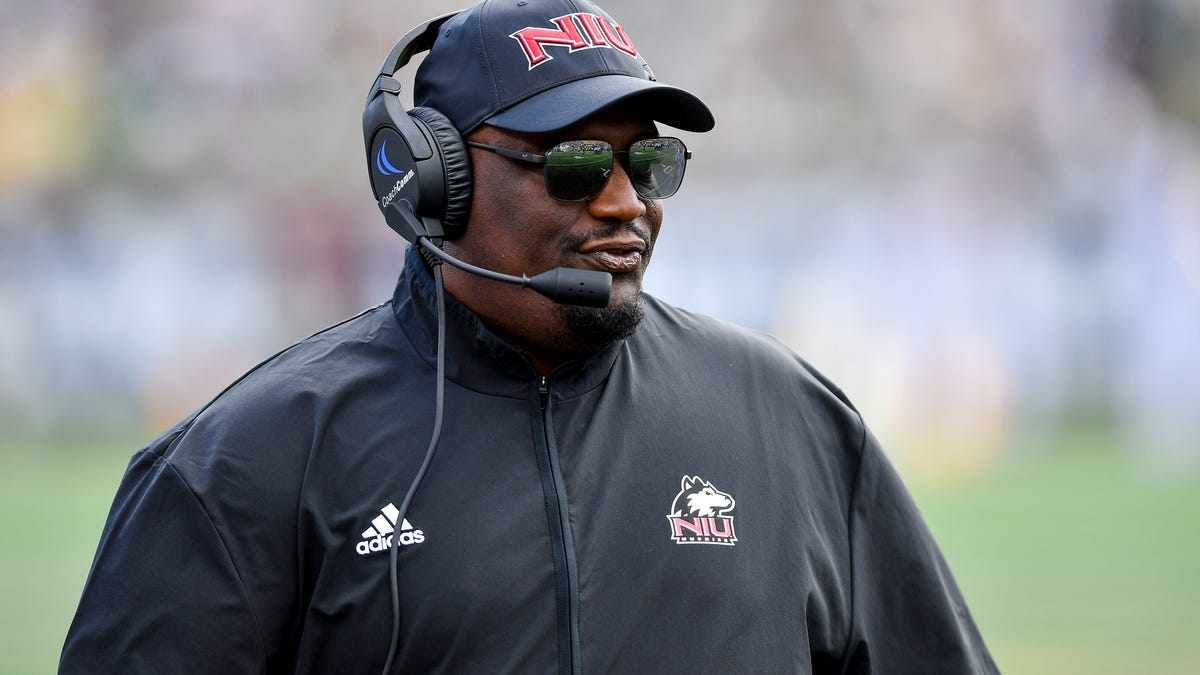
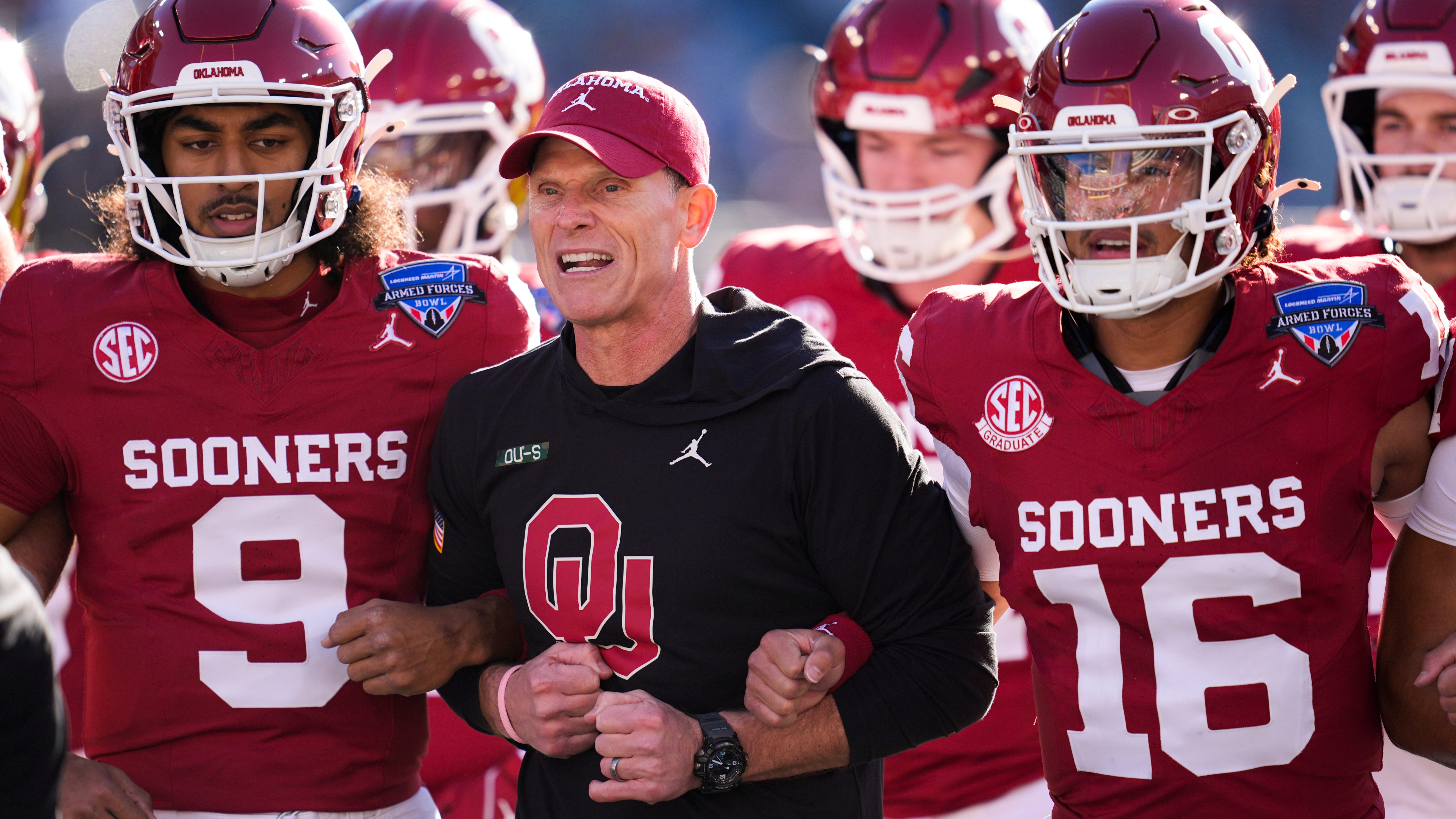
Brent Venables, Sam Pittman lead hot seat talk in 2025
Brent Venables, Sam Pittman and Mike Gundy lead the list of coaches under pressure in 2025.
When the NCAA allowed college athletes to transfer once without the penalty of having to sit out a year, players were offered an opportunity to seek fresh starts elsewhere while benefitting from the kind of unrestrained mobility coaches had enjoyed for decades.
One of the effects of that change, though, has been a widening gulf between college football’s haves and have nots, with programs from the sport’s biggest, most powerful conferences routinely plucking standouts from lower-level schools that don’t have the platform or financial resources to hold on to them.
It’s a reality that has caused frustration for many, particularly those outside of the Power Four conferences.
This week, one coach gave a loud, passionate voice to those feelings.
During a news conference on August 13, Northern Illinois coach Thomas Hammock said the ability to move from program to program has led to misplaced priorities from players and their parents, who he believes increasingly don’t value some of the non-monetary benefits that college can provide.
“I enjoyed my college experience,” Hammock said. “I didn’t get one dime. But the lessons I learned were more valuable than any money you could ever pay me. I appreciate that because that’s long term. People are losing the fact this is short term…Don’t lose focus of the long term. Get your degree and learn valuable lessons that are going to help you in the long term of your life. That’s the whole purpose. This is a transition from being a kid to a grown up. I hope people don’t lose focus of that.
“Everyone’s talking about everything else besides the most important thing of going to college. Because if you’re going to college to get a couple of dollars, you might as well go get a job. This is too hard to go get a couple of dollars. Learn the lessons that you need to learn to be successful in life for the next 40 or 50 years of your life. I would do it again for free because of the things I learned. That’s why I’m standing here today, because of what I learned in college. Not because of how much someone gave me.”
Hammock is entering his seventh season as the head coach at Northern Illinois, where he was a two-time academic All-American as a running back in the early 2000s. His Huskies teams have made bowl games in three of the past four seasons, including last season, when they went 8-5 and earned a stunning road win against eventual national runner-up Notre Dame.
That team was raided in the offseason, losing its starting quarterback, top three pass-catchers and many of its top defensive players to the portal, where many of them ended up at Power Four schools.
While Hammock said he loves the challenge of rebuilding a roster — his longer answer had come in response to a question about making the portal “more fair” — he wonders if the greener pastures players seek end up being any better than the places they just left.
“In life, you’re going to make decisions,” Hammock said. “Sometimes, it’s going to work in your favor. Sometimes, it’s not. I told our team the other day, we lost all these guys. Let’s see who plays. It’s all good when people put on Twitter ‘All glory to God, I’m going in the transfer portal.’ Let’s see if they play. How many of them guys are going to play or travel or get snaps?”
Hammock also believes some of the onus for portal decisions falls on the parents of players.
“Parents, they need to learn that lesson, too,” he said. “Stop trying to live through your kids. Teach your kids the things they need to learn to be successful. That’s what I’m telling my kids. I don’t care about no NIL or revenue sharing. I could care less. You need to learn things in college to get you prepared for life, to be a father, a husband, to work, everything else. Those are the most important things. That’s what people are missing.”
It is more important than ever for college athletes to develop a strategy that enables them to make use of their name, image and likeness amid the rapidly evolving framework for college sports. With the fourth anniversary of NCAA rules permitting college athletes to make money from the commercial use of their NIL just behind […]
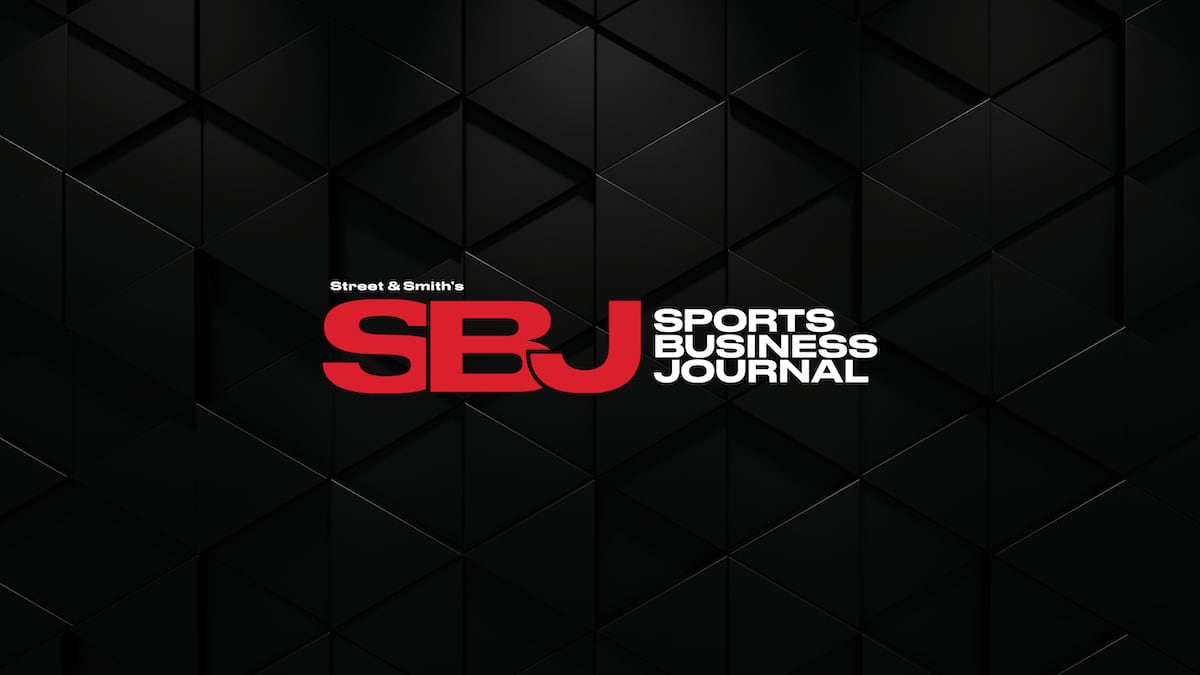
It is more important than ever for college athletes to develop a strategy that enables them to make use of their name, image and likeness amid the rapidly evolving framework for college sports. With the fourth anniversary of NCAA rules permitting college athletes to make money from the commercial use of their NIL just behind us, the newly approved House v. NCAA settlement, state legislation and proposed federal legislation continue to change the field. Here are four important guidelines for athletes interested in making the most of a rich landscape.
The NIL era opened the floodgates for college athletes, with a rush of businesses and brands seeking to partner with college athletes to reach their target audiences and consumers. Though the first few years have been described as “chaotic” or “unstable,” constant change in the marketplace means financial opportunity for college athletes willing to embrace it.
With College Football Playoff Championships often clearing 25 million viewers, and this year’s men’s March Madness championship topping 18 million, partnering with athletes is a no-brainer for brands of all sizes. Opportunities for athletes (especially those with social media followings) to partner with brands and businesses continue to grow. According to a SponsorUnited report, the last school year saw more than 3,000 branding deals for athletes with more than 1,700 brands.
We were encouraged to learn in a recent visit to a top-tier college athletic program that some schools are building dedicated internal staffing and resources to help their athletes source and fulfill branding deals. Athletes who are supported and encouraged by their programs to build their own personal brands, when they’re well advised with respect to properly monetizing NIL revenue stream, are less likely to enter the transfer portal solely in pursuit of increased economic opportunity. This financial benefit to individual athletes provides structure and the opportunity to better develop programs over multiple seasons, rather than risking the disruption caused by annual transfers.
NIL deals are great for exploring personal interests, pursuing passions and furthering self-expression, and industry leaders traditionally reserve substantial resources on their balance sheets and budget plans for branding and sponsorship deals. If an athlete loves video games, it’s a roughly $200 billion global industry; in the last year alone, there have been notable college athlete partnerships to support Activision’s Call of Duty, Epic Games’ Fortnite and of course, EA Sports College Football 26.
Athletes and their schools should think broadly about what is important to them in developing their personal brands and how those brands might complement their athletic and professional aspirations. Many athletes prioritize community and ethics in their NIL deals, leveraging their position to give back to social causes. For example, Simone Biles walked away from a lucrative deal with a major brand to pursue an opportunity with Athleta that focused on uplifting and celebrating women athletes.
Because this is still a new playing field, brands are still learning how to properly leverage partnerships with college athletes. Local businesses that may not have traditionally marketed through endorsements are participating for the first time in massive numbers because of the intense regional fandom that college athletics inspires. This is an opportunity to help these businesses dip their toes into the space and set up college athletes, more broadly, for longer-term participation in this evolving new world.
Athletes should remember to think long term. There are benefits to networking and learning tools to use for the future, or even an eventual transition to a career on the business side of sports. Branding partnerships could open the door to future job opportunities, personal development, and business building. This can be especially important for college athletes unlikely to play professionally after school.
Any good lawyer knows that the first offer for a branding deal is not the best offer. Athletes should not necessarily settle for the first proposal put in front of them.
And they should not negotiate in a vacuum. Athletes should be encouraged to talk to professional representatives about market rates for similar deals. They can also research other celebrities who work with a brand to see if there is any information on what they earn, or other ideas for what they want from a partnership. Coming to the table with statistics about the program’s media reach and viewer figures can help sell partnerships. Precedent is important, too — initial deals set the stage for the next one, and the price should be higher next season.
Further, “knowing your worth” isn’t just about a dollar figure. The quantity of social posts is a key deal point. It is not to an athlete’s advantage to flood social media pages with excessive posting — it dilutes the poster’s brand and makes people tune them out.
Exclusivity is extremely important — any exclusivity agreement should be thoughtfully time-capped and limited to the product’s exact narrow category. For example, exclusivity for “athletic outerwear, excluding footwear and headwear” leaves open much more opportunity for other partnerships versus a deal that is exclusive for “clothing.”
Athletes should not do it alone; they should engage competent, experienced and skilled advisers. Athletes who are not properly represented may be at a serious disadvantage, because they will not know the fair market value of their deals, what to ask for on other deal terms and other strategic considerations. As discussed above, these deals are not just about the dollar amount — exclusivity considerations, and the broader career strategy, can sometimes be even more important.
An experienced sports and entertainment attorney can help with all of the issues discussed here. Experienced counsel knows the industries at play — branding, entertaining, acting, modeling, entrepreneurship, investing, negotiating — inside and out. They can handle the business while college athletes focus on their already-full plate of school and sports and are essential to help athletes meet their full potential, in college exploring NIL, and beyond.
Binta Niambi Brown and John Meller are partners and Jacob Barroway is an associate at Manatt, Phelps & Phillips, LLP.
When the NCAA allowed college athletes to transfer once without the penalty of having to sit out a year, players were offered an opportunity to seek fresh starts elsewhere while benefitting from the kind of unrestrained mobility coaches had enjoyed for decades. One of the effects of that change, though, has been a widening gulf […]

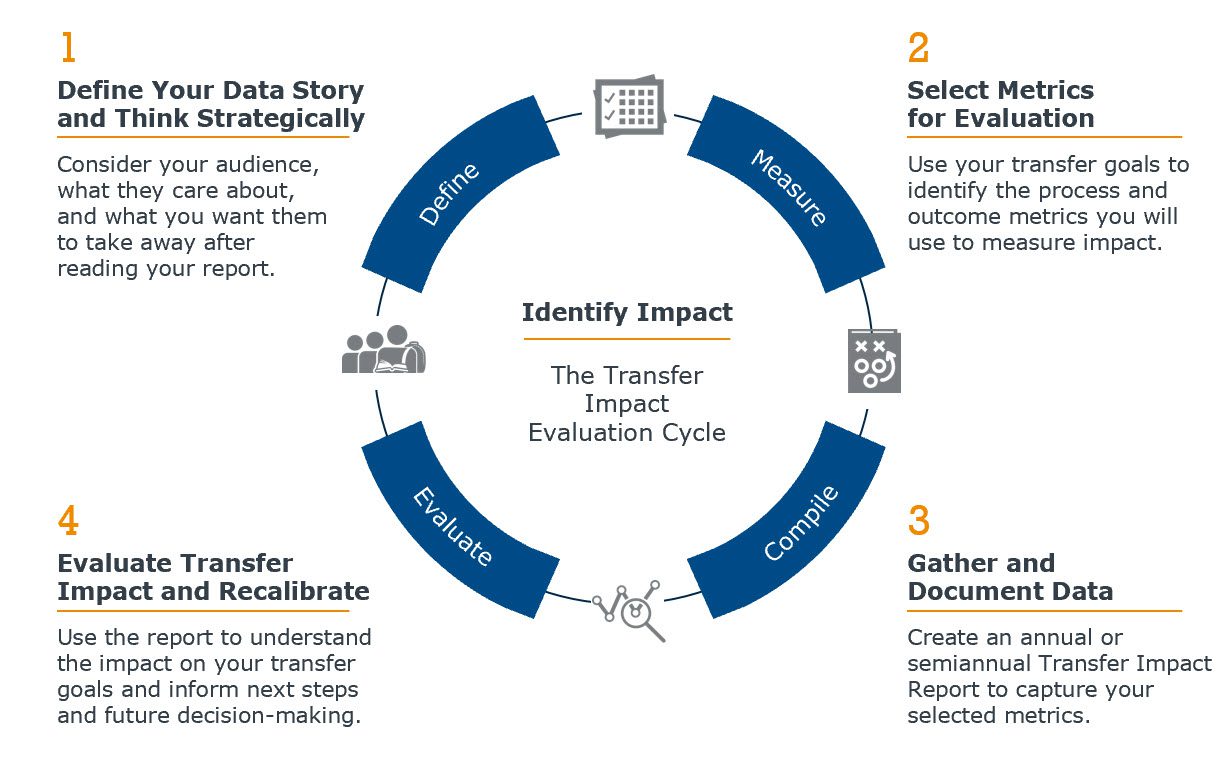

When the NCAA allowed college athletes to transfer once without the penalty of having to sit out a year, players were offered an opportunity to seek fresh starts elsewhere while benefitting from the kind of unrestrained mobility coaches had enjoyed for decades.
One of the effects of that change, though, has been a widening gulf between college football’s haves and have nots, with programs from the sport’s biggest, most powerful conferences routinely plucking standouts from lower-level schools that don’t have the platform or financial resources to hold on to them.
It’s a reality that has caused frustration for many, particularly those outside of the Power Four conferences.
This week, one coach gave a loud, passionate voice to those feelings.
During a news conference on August 13, Northern Illinois coach Thomas Hammock said the ability to move from program to program has led to misplaced priorities from players and their parents, who he believes increasingly don’t value some of the non-monetary benefits that college can provide.
“I enjoyed my college experience,” Hammock said. “I didn’t get one dime. But the lessons I learned were more valuable than any money you could ever pay me. I appreciate that because that’s long term. People are losing the fact this is short term…Don’t lose focus of the long term. Get your degree and learn valuable lessons that are going to help you in the long term of your life. That’s the whole purpose. This is a transition from being a kid to a grown up. I hope people don’t lose focus of that.
“Everyone’s talking about everything else besides the most important thing of going to college. Because if you’re going to college to get a couple of dollars, you might as well go get a job. This is too hard to go get a couple of dollars. Learn the lessons that you need to learn to be successful in life for the next 40 or 50 years of your life. I would do it again for free because of the things I learned. That’s why I’m standing here today, because of what I learned in college. Not because of how much someone gave me.”
Hammock is entering his seventh season as the head coach at Northern Illinois, where he was a two-time academic All-American as a running back in the early 2000s. His Huskies teams have made bowl games in three of the past four seasons, including last season, when they went 8-5 and earned a stunning road win against eventual national runner-up Notre Dame.
That team was raided in the offseason, losing its starting quarterback, top three pass-catchers and many of its top defensive players to the portal, where many of them ended up at Power Four schools.
While Hammock said he loves the challenge of rebuilding a roster — his longer answer had come in response to a question about making the portal “more fair” — he wonders if the greener pastures players seek end up being any better than the places they just left.
“In life, you’re going to make decisions,” Hammock said. “Sometimes, it’s going to work in your favor. Sometimes, it’s not. I told our team the other day, we lost all these guys. Let’s see who plays. It’s all good when people put on Twitter ‘All glory to God, I’m going in the transfer portal.’ Let’s see if they play. How many of them guys are going to play or travel or get snaps?”
Hammock also believes some of the onus for portal decisions falls on the parents of players.
“Parents, they need to learn that lesson, too,” he said. “Stop trying to live through your kids. Teach your kids the things they need to learn to be successful. That’s what I’m telling my kids. I don’t care about no NIL or revenue sharing. I could care less. You need to learn things in college to get you prepared for life, to be a father, a husband, to work, everything else. Those are the most important things. That’s what people are missing.”
AHSAA executive director Heath Harmon addresses members of the media at the Kickoff Luncheon on Thursday, Aug. 14, 2025. (AHSAA staff)AHSAA photo Heath Harmon’s second Kickoff Luncheon as the Alabama High School Athletic Association executive director was dominated by the same two topics as his first last summer. Non-compliant transfers and NIL. If you purchase […]



Heath Harmon’s second Kickoff Luncheon as the Alabama High School Athletic Association executive director was dominated by the same two topics as his first last summer.
Non-compliant transfers and NIL.
If you purchase a product or register for an account through a link on our site, we may receive compensation. By using this site, you consent to our User Agreement and agree that your clicks, interactions, and personal information may be collected, recorded, and/or stored by us and social media and other third-party partners in accordance with our Privacy Policy.


Ally Runs New Game Plan in WNBA All-Star Rookie Debut
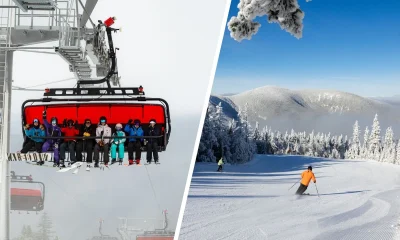

The Women Driving A New Era In U.S. Ski & Snowboard


ESPN Announces 'dont wait run fast' by mgk as New College Football Anthem for 2025


City rows to sporting destination goal on boats of new complexes & old strengths
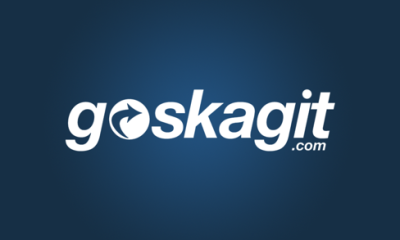

Ntekpere honored as Second Team Academic All-American | APG State News


Trump administration investigates Oregon's transgender athlete policies


Swimming & Diving Comments on the Rules – 2025-26


Amid Sports Chaos, ‘Known’ Data and Outcomes Help Agency Win


Where to watch Chile vs. Paraguay today


Sternberg named new youth center director | News, Sports, Jobs